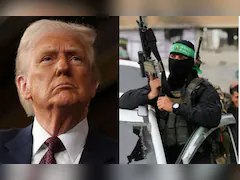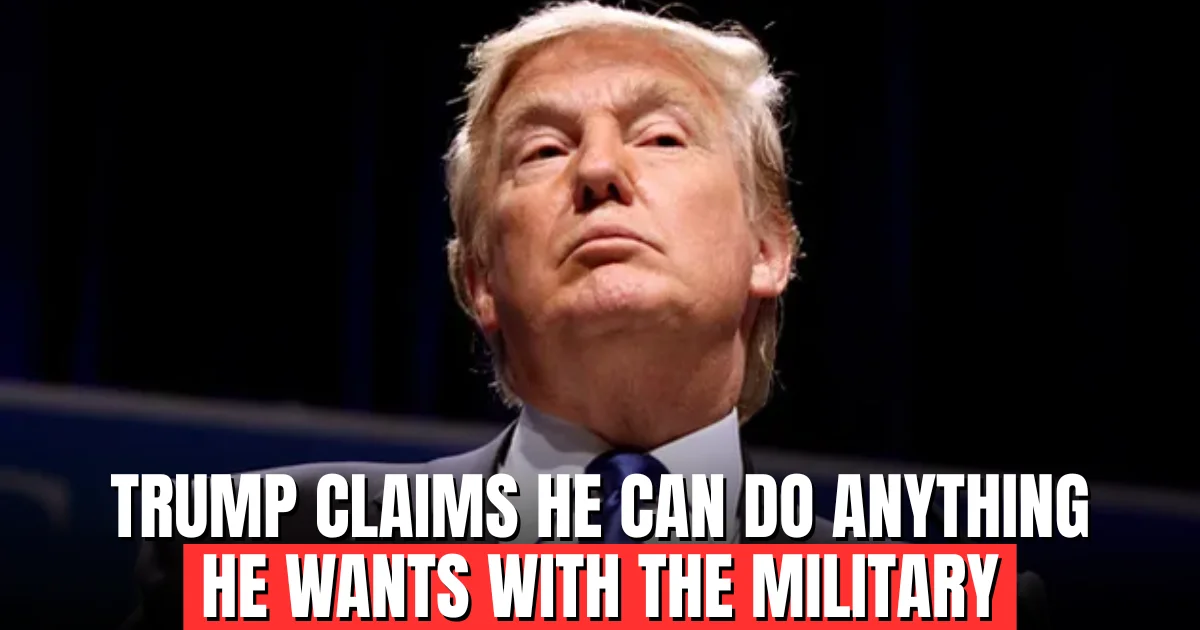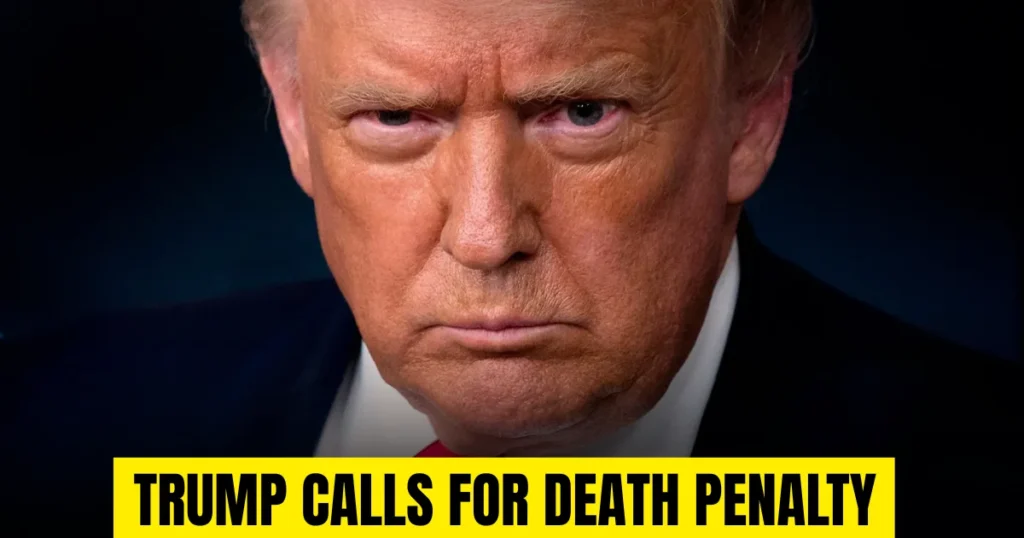Donald Trump says he can use the U.S. military however he wants. Here’s what the Posse Comitatus Act, War Powers Act, and legal experts say about his authority.
Table of Contents
Trump Claims He Has ‘Absolute Authority’ Over U.S. Military — Legal Experts Disagree
Washington, D.C. — September 10, 2025
President Donald Trump has sparked fresh controversy after asserting that he can “do anything” with the U.S. military, even without Congressional approval.
From deploying National Guard troops in Washington, D.C. and Los Angeles to ordering a Caribbean strike against a Venezuelan drug cartel, Trump’s aggressive use of the military is raising serious legal and constitutional questions.
Trump’s Statement and Growing Military Moves
At an August Cabinet meeting, when asked about potential nonviolent resistance in Chicago, Trump stated:
“Not that I don’t have the right to do anything I want to do. I’m the president of the United States.”
Recently, Trump posted an AI-generated image of himself dressed like a military commander from Apocalypse Now, which some interpreted as a warning to Chicago. Although he later clarified the U.S. would not go to war with the city, his administration has increasingly relied on the military to enforce policy.
National Guard Deployments & Legal Challenges

Trump has deployed National Guard troops in multiple cities despite objections from state governors and mayors. A U.S. District Court ruled that Trump and Defense Secretary Pete Hegseth committed a “serious violation of the Posse Comitatus Act” when sending federalized troops into Los Angeles.
What Is the Posse Comitatus Act?
- Enacted in 1878
- Limits the federal government’s ability to use the military for domestic law enforcement
- Violations can trigger significant constitutional disputes
Legal experts believe Trump’s actions push the boundaries of presidential power, especially since Congress traditionally controls the deployment of federal forces.
Caribbean Strike & War Powers Act Debate

Trump recently ordered a military strike against a Venezuelan cartel boat in the Caribbean, alleging it was carrying illegal drugs.
The administration justified the strike by designating drug cartels as terrorist organizations, but legal analysts argue this sidesteps congressional approval.
Under the War Powers Act of 1973:
- The President must notify Congress within 48 hours of any military action
- Operations can last 60 days without congressional approval, extendable by 30 days
- Beyond that, continued military action requires formal authorization
Trump has submitted notifications, including strikes on Houthi rebels and an Iranian nuclear facility, but lawmakers say he’s testing the limits of executive power.
Congress Pushes Back — But Limited Action Expected
Some members of Congress, including Sen. Rand Paul, have criticized the administration’s approach, warning against extrajudicial killings and unchecked executive authority.
However, experts note that Congress is unlikely to block Trump’s military actions due to deep partisan divides. While the War Powers Act grants lawmakers the authority to restrict operations after 60 days, few expect a bipartisan challenge.
Drug Cartels as Terrorist Organizations
The Trump administration has officially classified several Venezuelan cartels, including Tren de Aragua, as foreign terrorist organizations.
This designation enables the president to authorize lethal force without seeking separate approval. Critics, however, argue this approach stretches the legal definition of terrorism and risks violating international law.
What Legal Experts Are Saying
- Yale Law Professor Oona Hathaway called the Caribbean strike “manifestly illegal” because the administration did not attempt capture or due process.
- Vice President JD Vance, however, defended the operation, saying: “Using the military to go after cartels is the highest and best use of our forces.”
- Critics warn such statements undermine constitutional checks on executive power and could set new precedents for future presidents.
Final Thoughts
President Donald Trump’s claims of “absolute authority” over the military have triggered intense legal and political debates. While Trump argues his actions are necessary to combat crime, terrorism, and drug cartels, legal experts warn that these measures challenge constitutional limits and risk escalating conflicts abroad.
With pending Supreme Court decisions and growing congressional scrutiny, the coming weeks will likely determine how far a U.S. president can legally go when it comes to military power.

